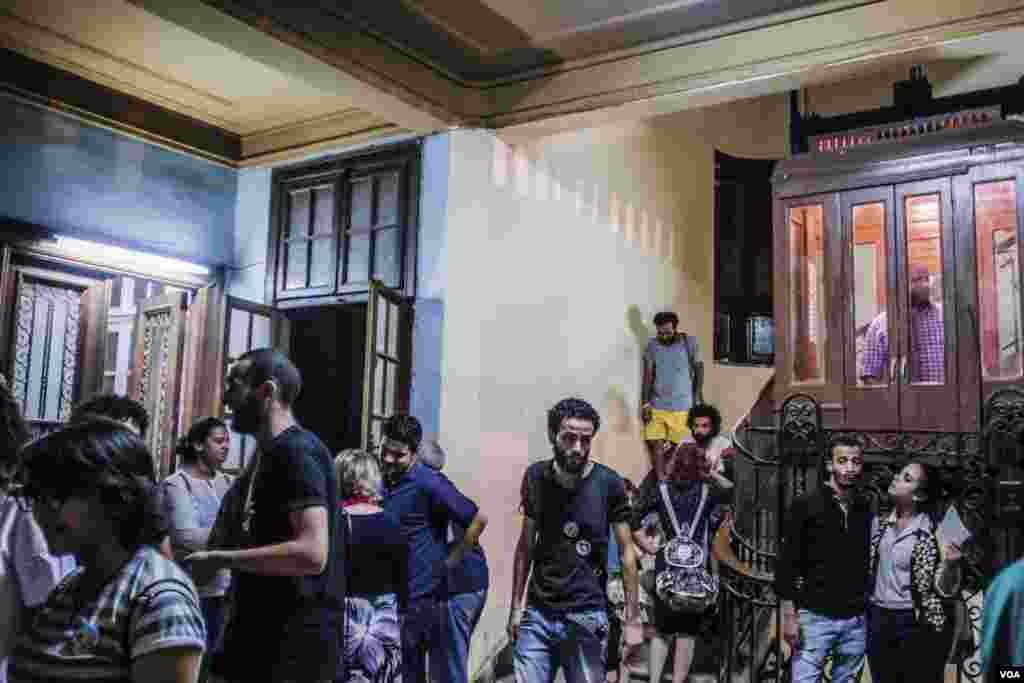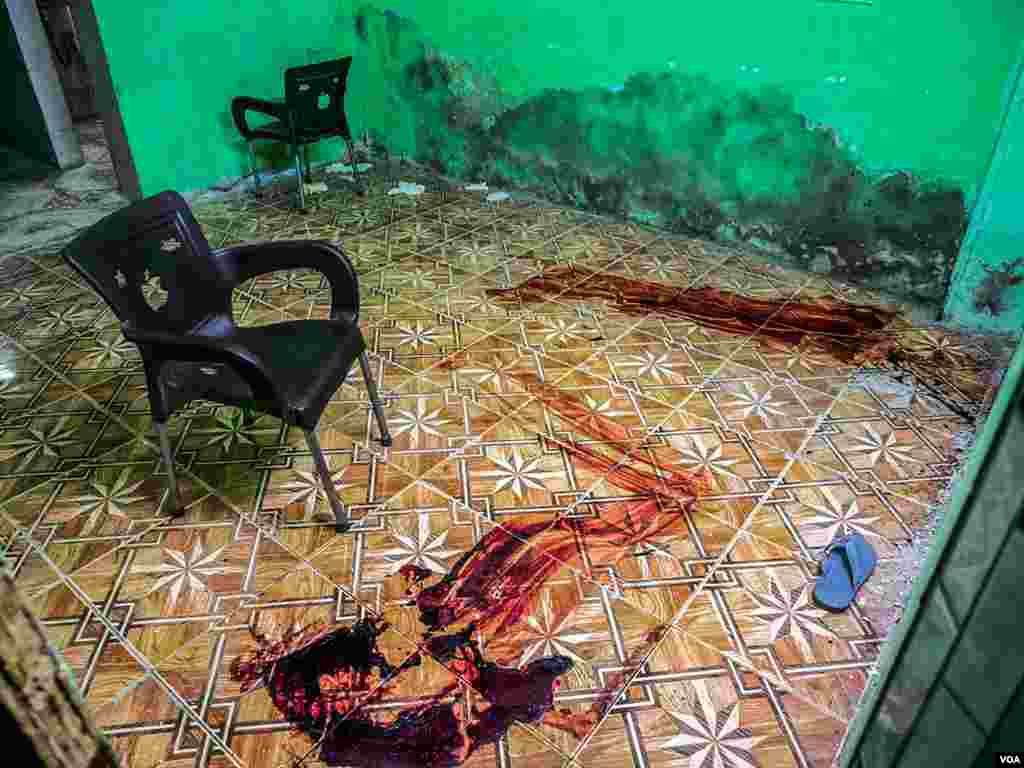Egyptian activists accuse the government of using the fight against terrorism as cover to lock up political opponents and human rights workers. Egyptian authorities deny wrongdoing, but overflowing prisons and harsh treatment have led critics to compare conditions to those that led to the Arab Spring in 2011.
Egypt's Deja Vu

1
Every year activists mark the death of Hisham Rizk by showing his graffiti art in a Cairo exhibit. The artist was found dead in the Nile river in July 2014 after posting on Facebook: “I’ll keep painting, and if I ran out of colors, I’ll paint with my blood. I feel honored to belong to this struggling community of activists,” Cairo, Egypt, July 19, 2017. (H. Elrasam/VOA)

2
In May 2015, Egyptian newspaper Al-Masry al-Youm published these images from the Ministry of Interior which said the two men were terrorist suspects killed while attempting to kill a judge. Ahmed Hassan Abdullatife and Saeed Said Ahmed were reported missing by their families a few days prior to their deaths. Activists say the pictures of the crime scene are inconsistent with the government’s version of events. Photo of image taken May 2015 in Cairo. (H.Elrasam/VOA)

3
Ramy M. Abdul, a forensic doctor who worked for the Egyptian Ministry of Health when the men died, also says the crime scene does not support the government’s assertion that the men were killed during a fight. “It seems that both of the bodies have been shot in the back,” he says. Additionally he says the position of the guns in the two published photos are different, pointing to the possibility of planted evidence. (H. Elrasam/VOA) May, 2015 in Giza, Egypt.

4
Nour Khalil, a human rights activist and a law student, says as many as 80 heavily armed soldiers stormed his home in May 2015. “About 10 soldiers, their faces covered with masks, pointed their guns at my face,” he says. “They woke me up and pulled a black cloth over my eyes and put me in their vehicle with my father and brother. I was detained for four days, my father for 15, and my brother was released after 122 days,” Giza, Egypt, July 16, 2017. (H. Elrasam/VOA)



